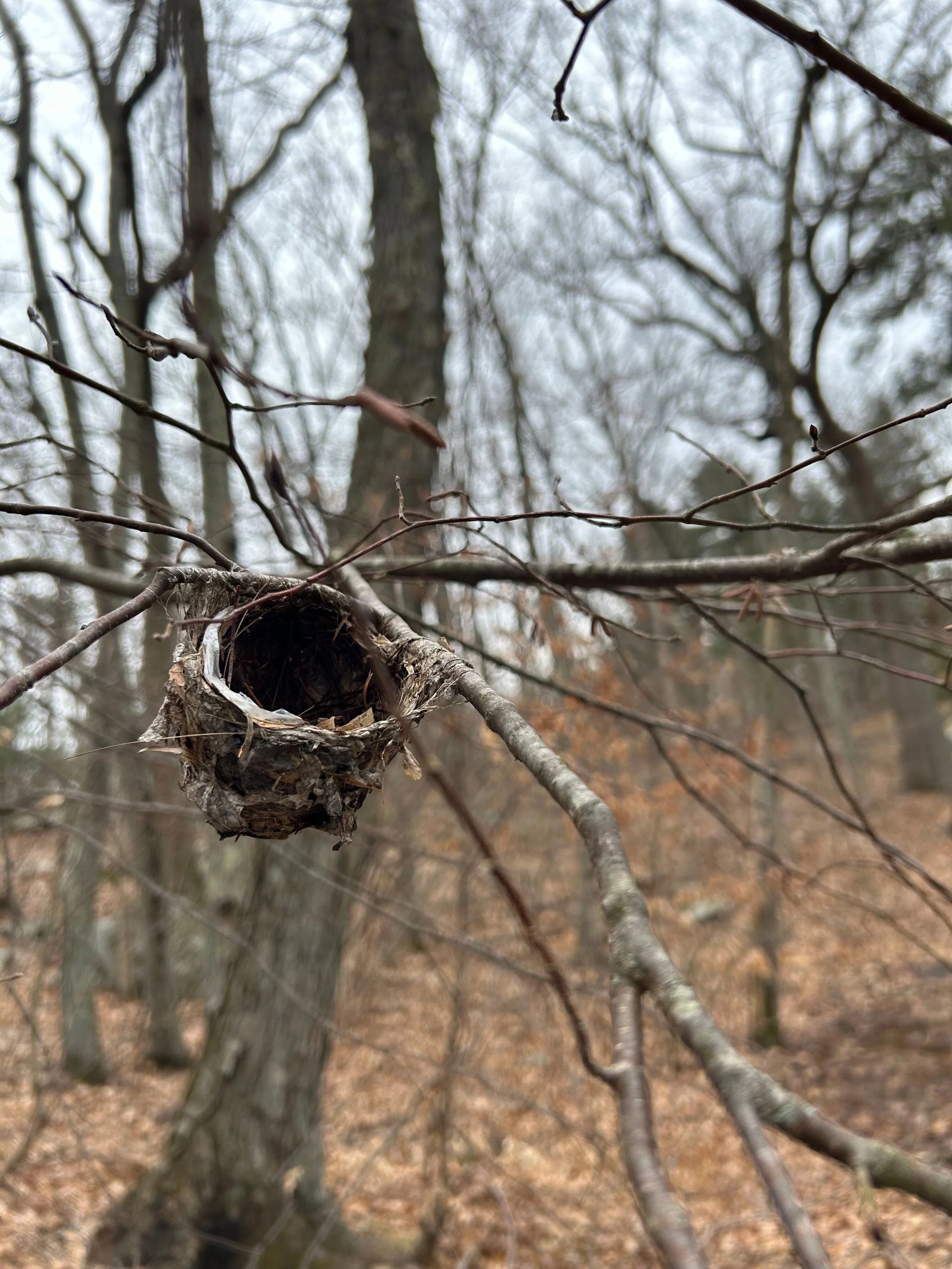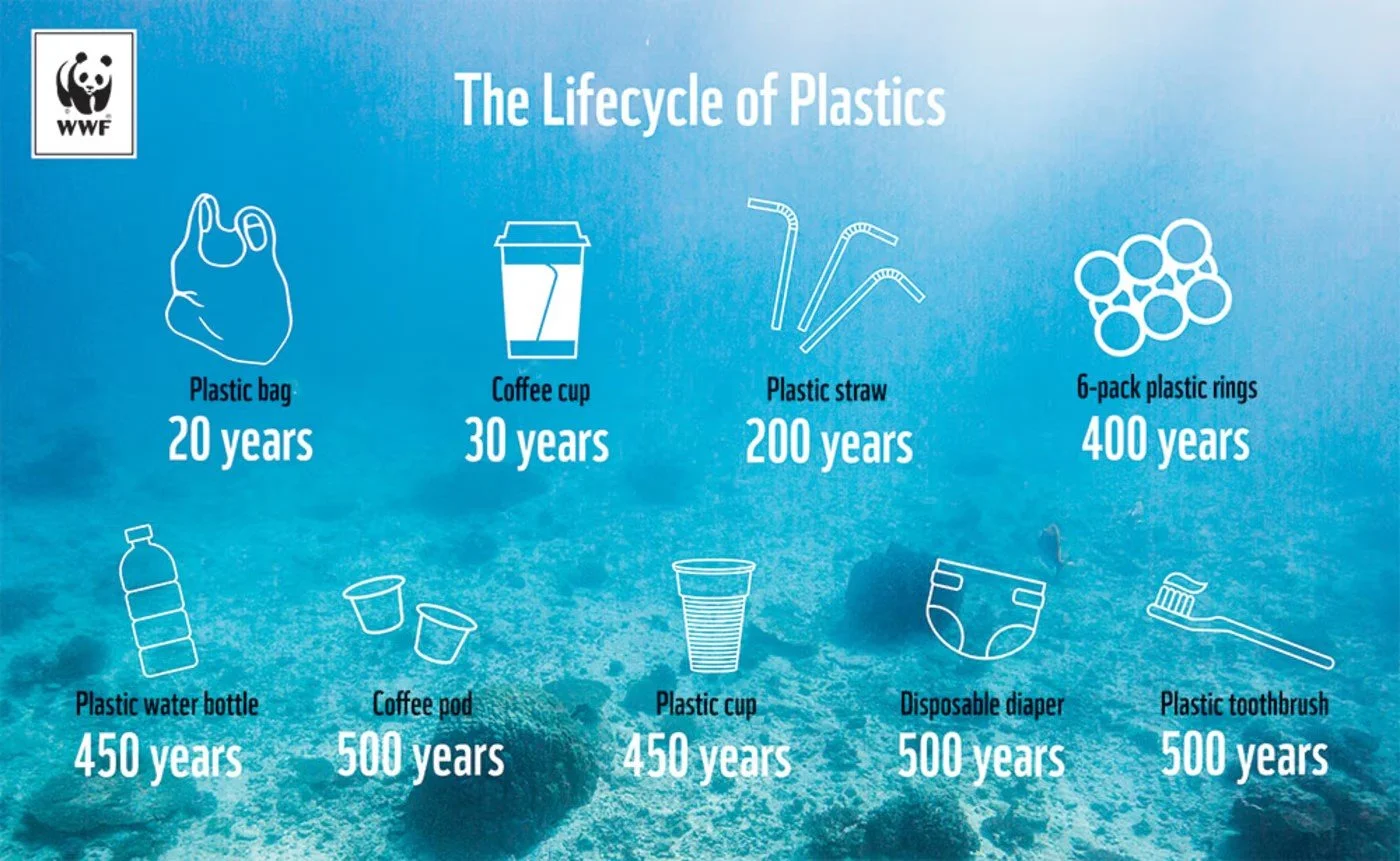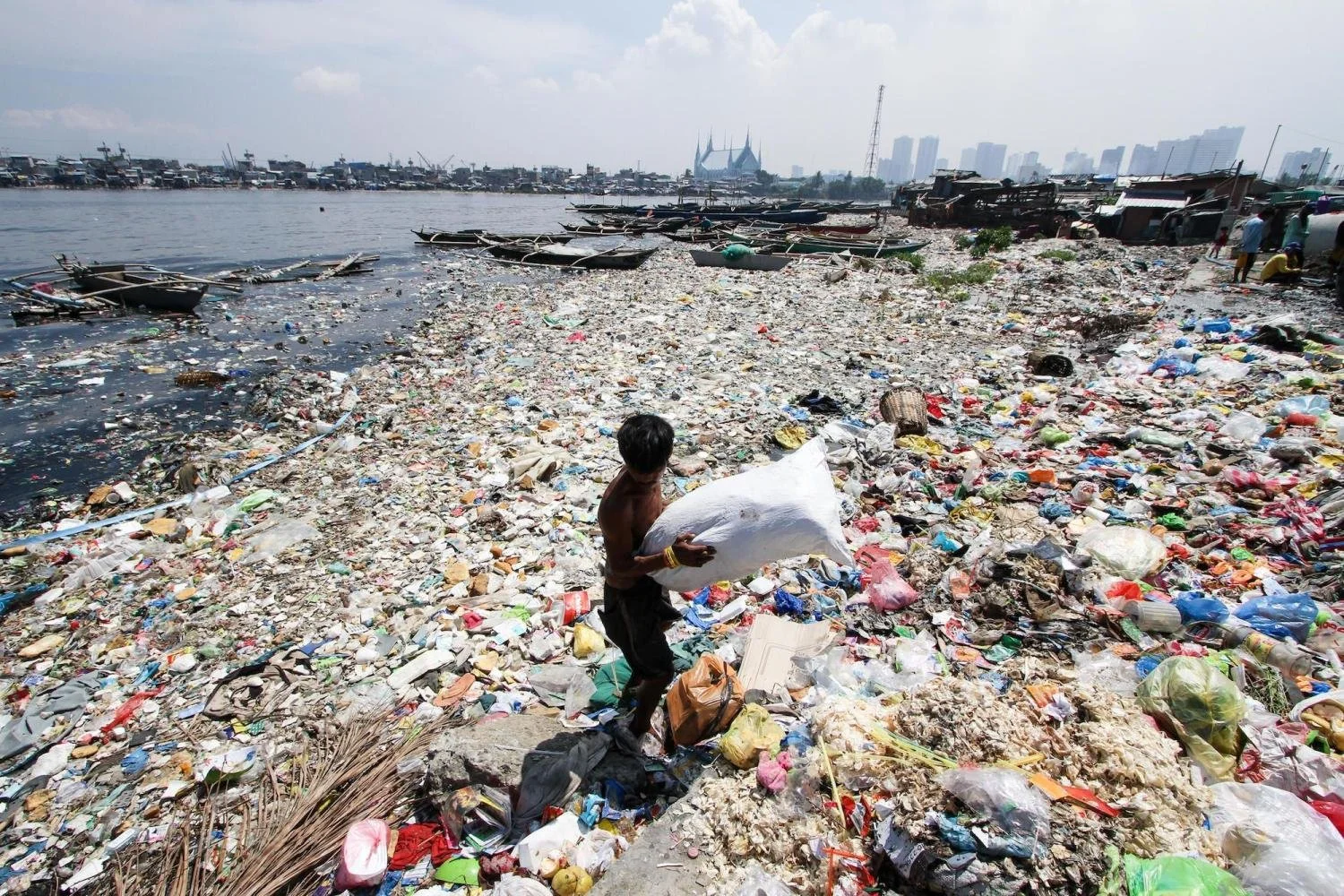Plastic Planet: A Journey to Low-Waste Living
Spring has sprung and its call is the sweet sound of a Bird's song. April is Earth Month. A gentle nudge to nurture Planet Earth and bask in the beauty of her biodiversity.
In the deepest part of the forests, a delicately crafted bird nest sits on a branch weaved together by years of evolution, skill, and you guessed it, plastic! At this rate, birds are recycling better than 70% of Americans!
Wherever you go, cans, wrappers, and plastic bottles clutter our ecosystems. A reminder of how little has been done to combat the pollution of single-use plastics. Luckily, you can help decrease pollution while simultaneously slowing the production of plastics by adopting a low-waste lifestyle.
Life of Plastics
In the early 1900s, plastic came on the market. The long-lasting shape-shifting material was produced quickly at lower costs than alternatives like wood, glass, and textiles. Ironically, those same ever-lasting properties exposed unethical disposal methods that would begin to pollute the environment.
Made up of chemical compounds called Polymers, plastics are unable to decompose naturally, taking several lifetimes to fully break down. Did you know? A single plastic water bottle takes 450 years to decompose! That's a lot of trash with nowhere to go.
WWF Australia
Plastic, People, & The Planet
Realistically, we can’t talk too much trash about plastic. As The Science History Institute explains, “Plastics made possible the development of computers, cell phones, and most of the lifesaving advances of modern medicine”(2019). While some plastics have helped advance technology, single-use plastics merely mirror convenience. Due to the lack of reusability, single-use plastics are discarded just as fast as they are acquired. As new plastics are being developed 400-year-old plastics still linger in places like the Great Pacific Garbage Patch, disrupting the natural functions of aquatic life.
Common Single-Use Plastics
Plastic Water Bottles
Plastic Bags
Single-use Straws & Utensils
Single-use Plates & Cups
Diapers
Sponges
Packaging
Great Pacific Garbage Patch
The average American comes across single-use plastics daily. Not only do these plastics wreak havoc on the environment but have been shown to have negative effects on human health. According to Geneva Environment Network, “Toxic chemical additives and pollutants found in plastics threaten human health on a global scale. Scientifically-proven health effects include causing cancer or changing hormone activity (known as endocrine disruption), which can lead to reproductive, growth, and cognitive impairment”(2022).
The production and overconsumption of plastic is a serious problem for the planet and all species that inhabit it. And even more concerning - the idea that you can't live without them! With countless low-waste options available on the market, you can still enjoy daily conveniences while maintaining a healthy ecological footprint.
What can you do?
As someone looking to take steps toward sustainability, lessening your consumption of plastics is a great way to start. Swap out single-use plastic with reusable options made with the people and planet in mind.
A common misconception about living a low-waste lifestyle is it’s rigid and expensive. This couldn't be the farthest from the truth! Most sustainable swaps are accessible and DIY friendly. Introduce reusable grocery bags, glass containers, and biodegradable sponges for cleaning. Start small and do what works for you!
Regardless of where you are in your journey to low-waste living, it’s important to know you’re not alone. Community is at the core of cultivating a sustainable environment. Lean on available resources and local businesses in your community for help!
Rhode Island’s first-ever refill shop, The Heal Room, works to inspire wellness in the community that circulates back into the health of the planet. The Heal Room’s vast selection of low-waste products and educational resources are easily accessible. Visit online or in-store to browse low-waste household essentials that keep your home safe and sustainable.
If you are looking to make connections based on wellness and sustainability explore Events at The Heal Room! Join The Heal Room on May 6th, 2023, for Community Clean-Up! Grab friends or family to get involved in ridding the plastic from the community. Sustainability starts with YOU! Get out there and leave a positive impact on our future generations.
Looking for research-based blogs to grow your digital platform? Plant a seed and watch your brand bloom. Visit Writing Relations
“History and Future of Plastics.” Science History Institute, 20 Nov. 2019, https://www.sciencehistory.org/the-history-and-future-of-plastics.
“The Life Cycle of Plastics .” WWF Australia, WWF Australia, 2018, https://wwf.org.au/blogs/the-lifecycle-of-plastics/?rd=1. Accessed 20 Apr. 2023.
“Plastics and the Environment.” Geneva Environment Network, 21 Apr. 2023, https://www.genevaenvironmentnetwork.org/resources/updates/plastics-and-the-environment/.





